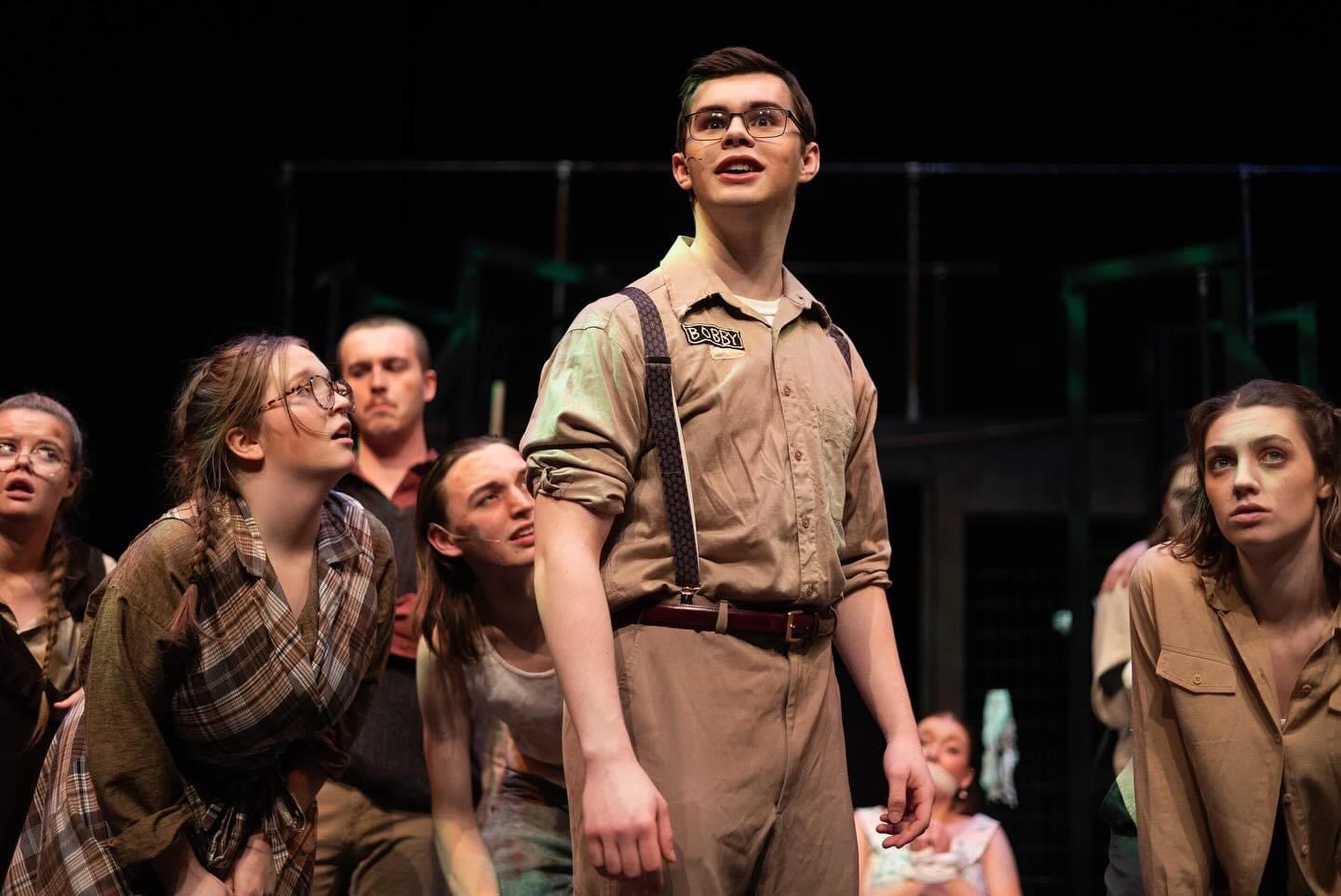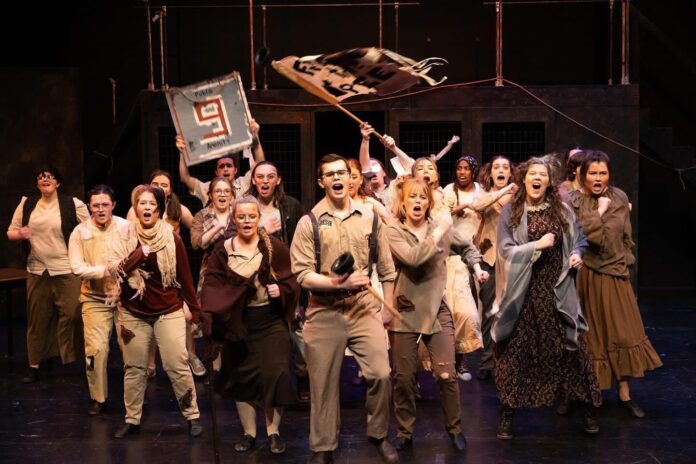I’m not the right person to ask when it comes to musicals. In fact, in my Arts Journalism class, JOUR-3602, there was a girl who ranked all-time classic musicals from best to worst and I thought she was speaking a different language.
That’s the essence of music though, transmitting a story through high-pitched notes and well-written lyrics. Little did I know I had given it for granted for all 19 years of my life. However, after watching STU’s Musical Theatre version of Urinetown I can say that’s a mistake I won’t make ever again.

Lights are off, people’s eyes fixated on the performers who enter the stage while staying in character and one person in the back row of the middle section turns their head everywhere trying to hide the theatre-outsider and never-seen-a-musical-live smell.
The fiery passion of a revolution, the injustice of power and the gut-wrenching star-crossed lovers of this story had the audience at the edge of their seats throughout this Brechtian-style musical. I had this impulse to turn my head around to see if we were all having the same experience. I was on a quest to capture someone’s expression in awe of the amount of talent in the room.
“This is my first musical, can you tell?” said a girl next to me as she incessantly applauded to the end of Act One with a broad smile.
Right from the start, the “Privilege to Pee” number set the bar pretty high for the entirety of the show. After witnessing Allie White’s version of Penelope Pennywise, I was certain that it would be my favourite solo and thought to myself “How could they top that?”
However, the bar kept rising as the show progressed and instead of thinking about which solo was my favourite, I concluded that they all built upon each other like a Jenga tower that would not be able to crumble down.
My eyes caught a person in the very front row, she was nodding while keeping a cheek-to-cheek smile during a group number. One of the things that made this show special was the synergy in which the crew interacted with each other.
It was evident that their form of communication was their passion for theatre and music and the audience powered this synergy as we followed the revolting emotions of The Poor, the forbidden love of Hope and Bobby and the lighthearted relationship of Little Sally and Officer Lockstock.
Even though it was repeated that this was not a “happy musical,” the only moment where people felt “unhappy” was intermission as they could not wait to go back into the black-spaced room and run towards freedom.
A standing ovation followed the end of Act Two and this time I wasn’t looking for someone else’s expression, I could sense myself crossing the threshold to the musical theatre world. I had discovered something and in disbelief, I looked over to the girl beside me who was also seeing a musical for the first time.
“I’m definitely coming tomorrow too,” she said as she rubbed her hands in glee and flashed a broad grin at me.

